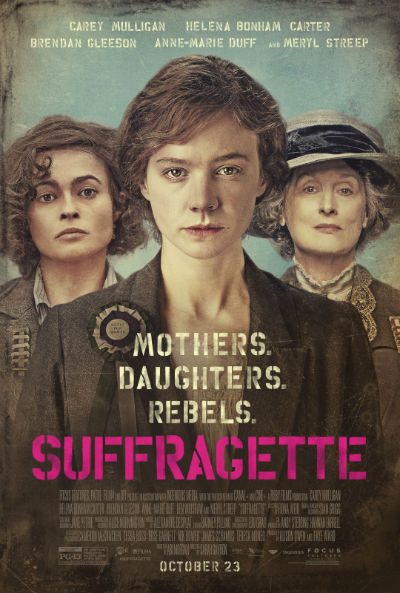Don’t be distracted by the controversy, see this film!
Window smashing, blowing up mailboxes, arson, police brutality, prison…the fight for women's vote in Britain was no ladies’ tea party. Working women’s courageous participation in the struggle in the early 1900s is dramatized in Suffragette.
The film shows the dire plight of women who labored long hours in sweatshops, yet had no control over any aspect of their lives. To change that situation, thousands risked safety, health, freedom, and notoriety.
This inspiring message has been clouded by a social-media flurry over a publicity photo in which the film’s stars, all white, wear T-shirts quoting suffrage leader Emmeline Pankhurst: “I’d rather be a rebel than a slave.” Some claim this trivializes the experience of Black slavery in the U.S. But they ignore the context of history.
Women of the time – treated as property, with no rights over their bodies, reproduction, children, labor, or money – were slaves of a sort. So said Lucy Gonzales Parsons, a revolutionary Chicana-Black labor organizer, speaking out for the vote in 1905: “We are the slaves of slaves” (referring to exploited working-class husbands).
Rebellion is the highest response to oppression – as leaders of slave revolts from Toussaint L'Ouverture to Nat Turner have showed.
See the movie. Judge for yourself.
About the author: Helen Gilbert is a longtime activist with Radical Women (www.RadicalWomen.org) and was one of the founders of the Pacific Northwest Alliance to Free Marissa Alexander and the national Free Marissa Now campaign. This article first appeared in Socialist Freedom Newspaper.
Watch the official trailer:
